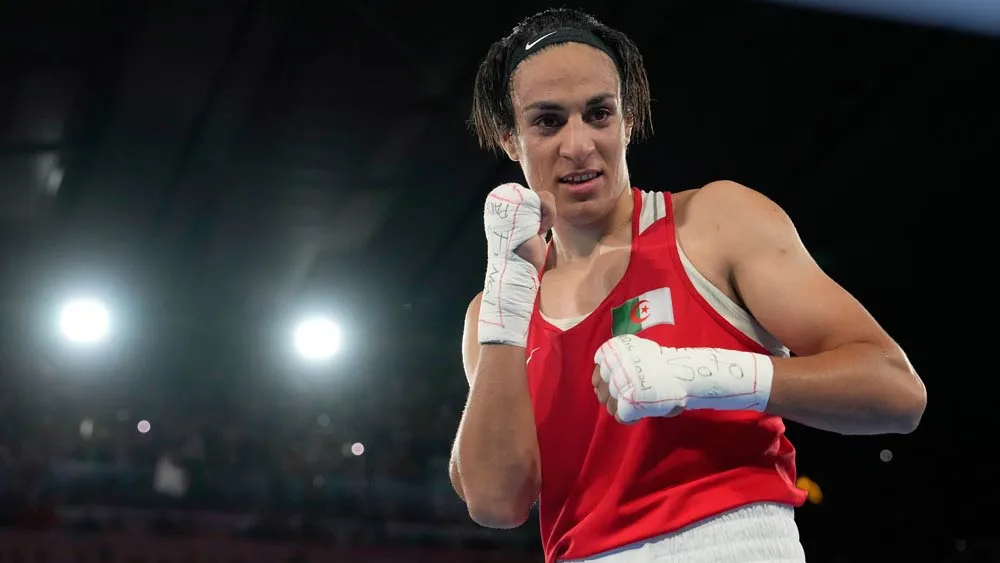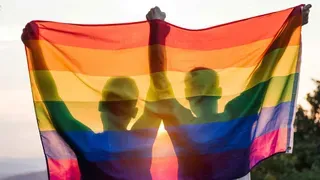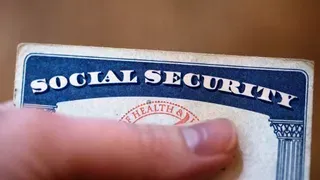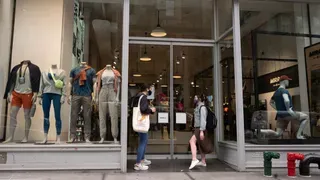August 8, 2012
PFLAG Philly Celebrates 40 Years of Keeping Kids Safe
Andrew Clark READ TIME: 8 MIN.
Thanks to media exposure and the Internet, kids are exploring their sexuality and coming out as LGBT younger than ever before. And Parents, Families and Friends of Lesbians & Gays (PFLAG) is there to support them. This year, Philadelphia's chapter of PFLAG -- one of the oldest in the country -- celebrates 40 years of keeping kids safe.
"PFLAG has become the central organization for LGBT families and has been recognized as experts and a solid resource by entities such as the White House and the US Congress," said Philly PFLAG Chapter President Mura Taska. "But of greatest importance to me and other PFLAG members, is the critical part we play in the lives of families."
A member of the organization for more than 10 years, Taska was brought to PFLAG for the most common reason: education. When her 16-year-old son came out as gay, Taska took it upon herself to reach out to PFLAG to ask questions, for which she and her son needed answers.
"My husband and I were not knowledgeable at all about what it meant to be gay," Taska recalls. "We were concerned for our son's safety in a world where coming out had made him a minority and where there was a hostile atmosphere toward the LGBT community. I did not know how to be a good parent to my gay son, and that truly troubled me."
Luckily, PFLAG has become a readily available resource for confused and uninformed family, and Taska found the Philadelphia chapter. "I found PFLAG on the Internet," she said, "and my husband and I went to our first meeting which changed our lives. Because of my son, I have met the most dedicated and loving people whom I treasure."
Even as the younger generation becomes more tolerant about what it means to be LGBT, there are countless hurdles to overcome. One of the most common is the process of coming out to one's family. While cruelty from one's own peers is certainly something to fear in most children's decisions to come out, an overwhelming amount are much more afraid of how their parents will react. For far too many these fears are valid. In a country riddled with homeless LGBT youth, it is no wonder that many decide to keep it to themselves until they find some level of independence.
PFLAG first began in 1973, sparked from the outrage of New York City mother Jeanne Manford, who watched as her gay son was brutally attacked in a bias crime, without any retribution from nearby police officers. Following this event, Manford marched in the 1972 Pride Parade in New York City with a sign that read, "Parents of Gays: Unite In Support Of Our Children."
After overwhelmingly positive feedback from other LGBT people who yearned for similar acceptance and passion from their own parents, Manford went on to begin what would be the first incarnation of PFLAG. Throughout the years, the scope of the group grew to include bisexuals and the trans community, but the idea behind it has remained steady: that as family and parents of a suppressed and violence prone group, it was their duty to help fight for equality.
This year marks the 40th anniversary of Jeanne Manford's march with her son, and the Philadelphia group is one of the most impressive and powerful parts of our community. With chapters in every major city and many smaller chapters scattered throughout the country, LGBT people now know that even if it's not their own family, there is a family to care for them.
Through Philadelphia PFLAG, Taska and others like her have the benefit of learning from this supportive and informative group of people, many of whom come from various walks of life and vantage points, including Thanks to media exposure and the Internet, kids are exploring their sexuality and coming out as LGBT younger than ever before. And Parents, Families and Friends of Lesbians & Gays (PFLAG) are there to support them. This year, Philadelphia's chapter of PFLAG -- one of the oldest in the country -- celebrates 40 years of keeping kids safe.
"PFLAG has become the central organization for LGBT families and has been recognized as experts and a solid resource by entities such as the White House and the US Congress," said Philly PFLAG Chapter President Mura Taska. "But of greatest importance to me and other PFLAG members, is the critical part we play in the lives of families."
A member of the organization for more than 10 years, Taska was brought to PFLAG for the most common reason: education. When her 16-year-old son came out as gay, Taska took it upon herself to reach out to PFLAG to ask questions, for which she and her son needed answers.
"My husband and I were not knowledgeable at all about what it meant to be gay," Taska recalls. "We were concerned for our son's safety in a world where coming out had made him a minority and where there was a hostile atmosphere toward the LGBT community. I did not know how to be a good parent to my gay son, and that truly troubled me."
Luckily, PFLAG has become a readily available resource for confused and uninformed family, and Taska found the Philadelphia chapter. "I found PFLAG on the Internet," she said, "and my husband and I went to our first meeting which changed our lives. Because of my son, I have met the most dedicated and loving people whom I treasure."
Even as the younger generation becomes more tolerant about what it means to be LGBT, there are countless hurdles to overcome. One of the most common is the process of coming out to one's family. While cruelty from one's own peers is certainly something to fear in most children's decisions to come out, an overwhelming amount are much more afraid of how their parents will react. For far too many these fears are valid. In a country riddled with homeless LGBT youth, it is no wonder that many decide to keep it to themselves until they find some level of independence.
PFLAG first began in 1973, sparked from the outrage of New York City mother Jeanne Manford, who watched as her gay son was brutally attacked in a bias crime, without any retribution from nearby police officers. Following this event, Manford marched in the 1972 Pride Parade in New York City with a sign that read, "Parents of Gays: Unite In Support Of Our Children."
After overwhelmingly positive feedback from other LGBT people who yearned for similar acceptance and passion from their own parents, Manford went on to begin what would be the first incarnation of PFLAG. Throughout the years, the scope of the group grew to include bisexuals and the trans community, but the idea behind it has remained steady: that as family and parents of a suppressed and violence prone group, it was their duty to help fight for equality.
This year marks the 40th anniversary of Jeanne Manford's march with her son, and the Philadelphia group is one of the most impressive and powerful parts of our community. With chapters in every major city and many smaller chapters scattered throughout the country, LGBT people now know that even if it's not their own family, there is a family to care for them.
Through Philadelphia PFLAG, Taska and others like her have the benefit of learning from this supportive and informative group of people, many who come from various walks of life and vantage points, including members of the LGBT community who could help guide the conversation and give a first-person account of what many of the children were going through.
Taska stayed because she was able to see first-hand the world of good such a group of allies can do. At a time when the LGBT community was neither strong in visible numbers nor in media and political representation, having a support network was essential. Despite recent gains, this support remains invaluable.
members of the LGBT community who could help guide the conversation and give a first-person account of what many of the children were going through.
Taska stayed because she was able to see first-hand the world of good such a group of allies can do. At a time when the LGBT community was neither strong in visible numbers nor in media and political representation, having a support network was essential. Despite recent gains, this support remains invaluable.
The LGBT Community’s Need for PFLAG is Evergreen
EDGE asked Taska whether the wealth of positive, visible LGBT role models and increased societal tolerance would at some point render PFLAG obsolete. She assured that the need to support our LGBT youth was evergreen.
"Regardless of the advances of civil rights for the LGBT community, the coming out process for both LGBT individuals and their parents, family members and friends is new to them and likely something with which they have little or no experience," said Taska. "PFLAG members provide the education and support that families need. We speak to groups in many venues, among them schools and universities and religious organizations."
It is this staunch belief that PFLAG has an important role and voice that has helped many youth overcome not only their own demons in the closet, but also the problems they are having at home. Taska explained that PFLAG reaches youth, especially at their many outreach events.
"We staff a table at major Philadelphia LGBT events," she said. "We can usually tell by the way a young person approaches our table if they are experiencing family difficulties. We are often a substitute family and are heartened that we can help our youth. We advocate on their behalf in large ways and in small by demonstrating on a daily basis that our families are just like any other and warrant equal rights and treatment."
In addition, while referencing the increasingly tolerant and educated viewpoints towards the LGBT community, Taska cautioned people from the thinking that everywhere in the country is as progressive as urban areas. For that reason, Taska says, PFLAG will always continue its mission of education, support and advocacy.
To that end, PFLAG Philly continues to coordinate monthly support meetings, policy-changing campaigns in our government and schools, and nationwide educational initiatives for those who are members of PFLAG and those who are not.
And to commemorate their 40th anniversary, PFLAG Philadelphia will continue its mission of support to the LGBT community and their loved ones who need it. Taska was insistent that much more than large events and grand gestures, PFLAG's main role is to be a steady, safe and inclusive forum for those in need.
"I feel that through PFLAG we have a strong collective voice to advocate for equality for our children, and that is crucial to me," said Task. "The most important thing we can do is to continue to effectively use the resources of our national office and rely on the dedicated involvement of parents and LGBT members at the chapter level."
For more information about PFLAG Philadelphia, visit http://www.pflagphila.org/. To find your local chapter, visit community.pflag.org







